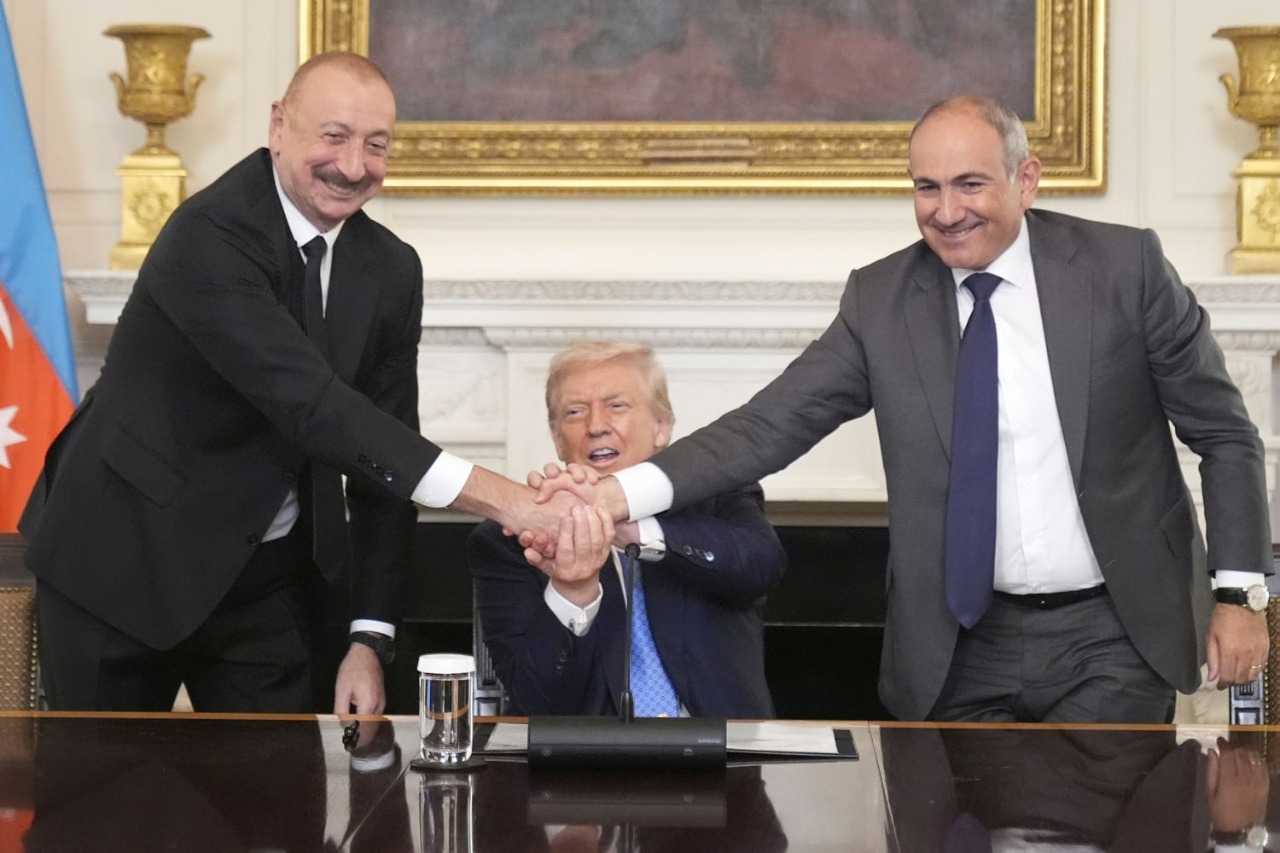
There are significant lacunae in Washington agreements threatening to derail Armenia-Azerbaijan peace initiative, says Modern Diplomacy
Despite the summit theatrics and subsequent criticism—some warranted given Pashinyan’s dismal policy choices to date, others uninformed—these Washington agreements could end Aliyev’s incessant demands for new preconditions and suspend immediate threats of Azerbaijani aggression against sovereign Armenian territory. However, lasting peace remains elusive unless the U.S., as broker, urgently addresses major gaps through further diplomacy, Modern Diplomacy writes.
As noted, three significant lacunae threaten the agreements’ sustainability:
First, detailed terms for the 99-year U.S. land lease to build the 43.5-kilometer “Trump Route for International Peace and Prosperity” (TRIPP) across Armenia’s southern Syunik region, and the “reciprocal benefits” Armenia would receive through Azerbaijani territory, remain unspecified.
Second, the fate of 23 Armenian hostages in Baku, subjected to sham trials without proper defense or independent observers, is ignored.
Third, the rights of indigenous Armenians expelled from Nagorno-Karabakh in October 2023 following Azerbaijan’s assault, including their right of return and protection of historic heritage, are unaddressed.
The leaders also signed a memorandum dismissing the OSCE Minsk Group, mandated since 1992 to mediate the Nagorno-Karabakh conflict. This was purely ceremonial—the Minsk Group had already been moribund since 2022—serving only to inflate Aliyev’s ego.
They also signed multiple bilateral economic agreements with the U.S., some more consequential than others. In addition, the U.S. agreed to waive domestic legislation (“Section 907”) that banned U.S. military assistance to Azerbaijan, which had been waived yearly since 2001.
The highly problematic Article 15 of the Agreement obligates both countries to “withdraw, dismiss, or otherwise settle” within one month of ratification any “interstate” proceedings in international fora like the International Court of Justice, the European Court of Human Rights, the International Criminal Court, and arbitration venues. While requiring withdrawal of “interstate” lawsuits, Article 15 does not obligate Azerbaijan to dismiss proceedings against the 23 Armenian hostages in Baku jails—these are considered domestic, “intrastate,” cases. After two to five years’ incarceration, their plight and the omission in the Agreement demand immediate remedy. Through TRIPP, the U.S. gains control of a key link in the emerging “Middle Corridor” (Trans-Caspian International Transport Route) from China through Kazakhstan, the Caspian Sea, Azerbaijan, Georgia and/or Armenia, Turkey, to Europe. TRIPP strategically excludes Iranian and Russian influence while enabling goods to bypass Iran and Russia, transforming a contested regional concept into a U.S.-managed strategic asset reshaping South Caucasus trade flows and geopolitical influence. Both Russia and Iran are concerned, retaining substantial leverage in Azerbaijan and Armenia to derail the project. If TRIPP serves as a U.S. geopolitical minefield aimed at isolating Moscow and Tehran from the South Caucasus, it will fail. Success requires genuine diplomacy addressing the three critical gaps: detailed TRIPP terms ensuring Armenian sovereignty and reciprocal benefits, immediate release of Armenian hostages, and protection of displaced Nagorno-Karabakh Armenians’ rights. Without resolving these issues, the Washington agreements risk becoming another failed peace initiative rather than the foundation for lasting stability in the South Caucasus.


